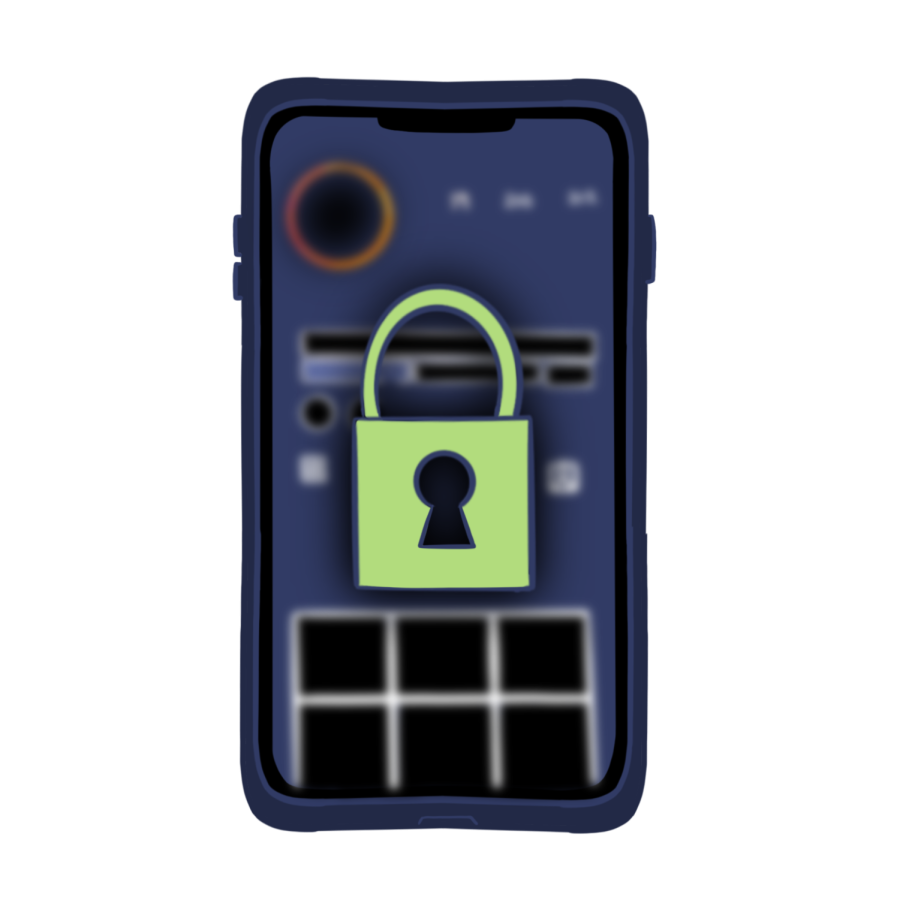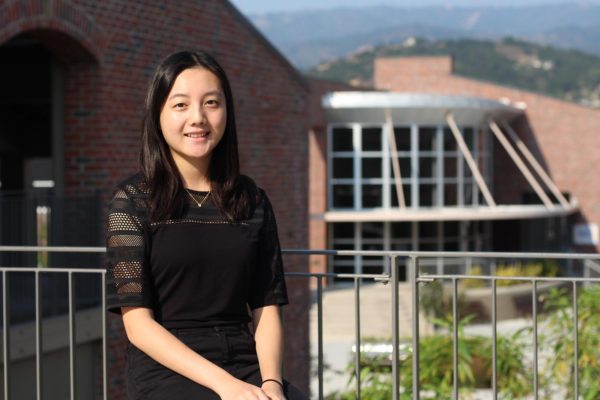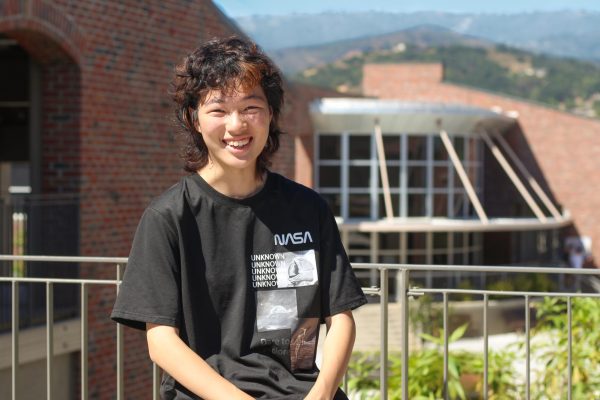Going private
Exploring how teachers and students view their privacy on social media
According to a survey of 173 students, 28.9% of MVHS students follow teachers on social media.
October 5, 2022
Literature and AVID teacher Mark Carpenter keeps their Instagram account public to everyone – students included – even after a student used a post showing a photo taken near Carpenter’s house to find their address.
“I don’t know what drives [them to do] something like that,” Carpenter said. “I don’t think it was meant [to be] threatening, I don’t read it as threatening, but at the same time, that’s not something I need to have happen.”
Many teachers have started using platforms like Slack and Discord as an extension of the classroom for discussion and homework help. However, some students also choose to follow teachers’ social media accounts, closing the gap between school and their personal lives and putting into question the extent of privacy between students and teachers, especially in incidents like Carpenter’s doxxing incident.
Despite their experience, Carpenter remains indifferent to the fact that students follow them and maintains that their interest in posting is “generally very limited.” They interact with students on Curious Cat, a Q&A platform through which users can send anonymous questions, instead of Instagram.
“[My Instagram account] is probably not extremely private, but it’s a pretty dull ride,” Carpenter said. “So [privacy] is not a thing that I necessarily worry about.”
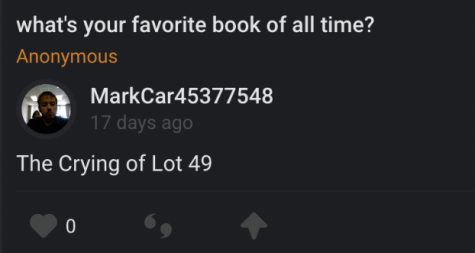
On the other hand, math teacher Alan Wong says that he is cautious on all social platforms as he often receives random texts from people, robots and businesses that he doesn’t know because his information is accessible on the Internet.
“My own human nature is just to not really publicize that much about myself anyway,” Wong said. “I am an introvert, so I tend to do things with myself and my family, my friends, but I don’t make everything about me all so public, so I’ve made sure that the people who see my account are just family and friends and it’s not open to the open world.”
Junior Lemon Liu also believes that “no one is really safe once they get on social media” and uses a private Instagram account that they only let friends follow to share more personal content, alongside their public account. She acknowledges that she is careful about what she posts in general due to her concerns about platforms monitoring users’ activities and collecting personal information.
“Even before I share posts or stories, I think, is this something I [won’t] regret sharing?” Liu said. “A couple months later, if I look back on this, would I regret it? And then if the answer is like no, then usually I would just go ahead and post it.”
Wong remains conscious of his followers when he shares posts on Instagram in addition to having his account set as private. He prioritizes “having common sense about what you publicize” and “[setting] a boundary line between students and teachers” – especially current students, as he believes connecting outside of class may be used to gain an unfair advantage in grades. However, he sometimes keeps in touch with ex-students using social media, acknowledging that he appreciates the bonds he forms with former students through that communication.
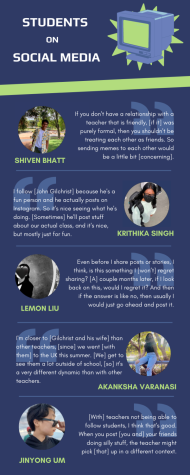
“With alumni there’s not that expectation of becoming a friend or getting too close where there might be certain biases towards grades or things like that,” Wong said. “But once they’re alumni, we can just talk about life and our own experiences, and it’s not about trying to get a better grade or anything like that.”
In general, Liu “[doesn’t] see a point in following [teachers]” and adds that his past teachers, such as his orchestra teacher from middle school, have followed the guideline of only allowing students to follow them after graduating.
“I guess that’s a good way to set boundaries,” Liu said. “Like after you graduate, you can talk and catch up with your teachers or whatever, but I think in school, it’s better to have teacher-student boundaries.”
Although Carpenter agrees with Wong that boundaries should be set to ensure privacy, they explain that if they were uncomfortable with current students following them, they wouldn’t allow it.
“I think, for a large part, a professional can decide how accessible they want to be, and if students try to cross that line, they should be able to say ‘don’t do that please’ and whatnot,” Carpenter said.
“I have no interest in following my students or commenting on their own posts. But if they’re interested in a glimpse into my life outside the classroom, I don’t mind that.”


